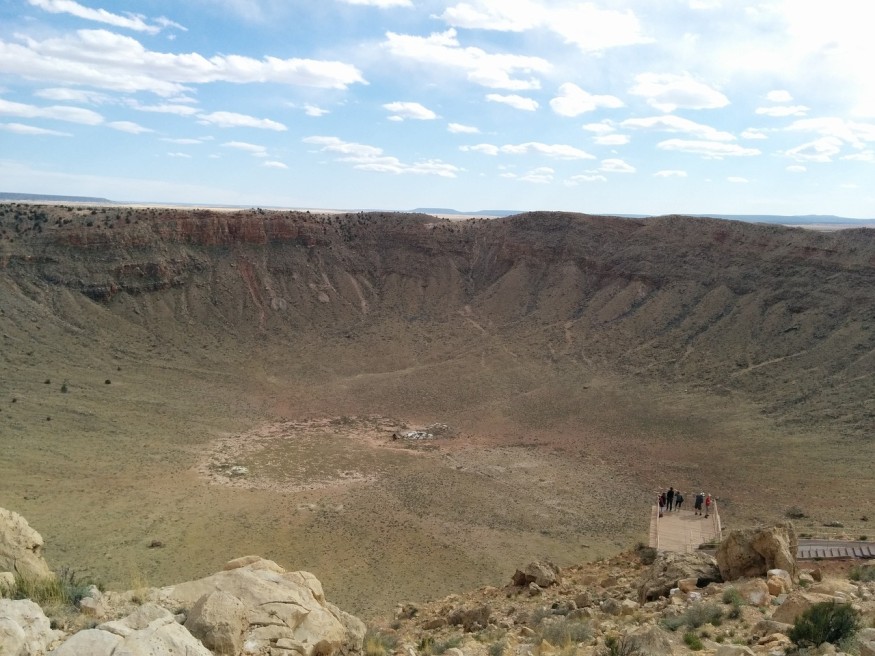
The amphitheater-like valley depression atop a mountain in the Jilin province in Northeastern China is actually an asteroid impact crater, which makes it the first known one found atop mountains.
Odd Deep Gap Between Mount Baijifeng's Two Peaks
The mountain Baijifeng mainly consists of sandstone and minimal amounts of granite. Deposits came more than 500 million years ago in a sea that was shallow. Later on, movements in tectonics folded and tilted the layers of sediment for it to form a chain.
Most of the Earth's mountain ranges have a similar formation. However, unlike most cases, there is a 1.6-kilometer depression that is situated between Baijifeng mountain's two peaks. Researchers found the unusual shape intriguing and then proceeded to look into the debris of rocks all over the mountain. Doing so enabled them to find proof of shock metamorphism which takes place only during an asteroid impact on Earth.
ALSO READ : Earth's Oldest Impact Craters Are Vanishing; What Happened to These Circular Depressions?
First Known Mountaintop Impact Crater
These two peaks are filled with fragments of rock called celestial stone. According to the study that documented the analysis, rocks on the two peaks have shock patterns that indicate a space object's impact.
The researchers gathered granite and sandstone samples from its surface and looked into the quartz minerals inside of it. When huge amounts of pressure and heat shock these minerals, quartz ends up deforming in a certain manner. Hence, the researchers sought signs of this deformation. They found dozens of deformation samples in the thin rock samples.
The crater's granite was formed around 150 to 172 million years ago, which indicates that the asteroid impact could have taken place during this time after the granite formed. Considering the rock fragments' fresh look, it is likely that the impact crater is quite young. However, when the asteroid impact exactly took place remains a mystery.
Impact Craters in China
The weathering patterns seen in Baijifeng mountain are similar to those observed in one of China's two confirmed impact craters. This is the Yilan Crater situated in Heilongjiang province.
Yilan Crater, which is roughly 49,000 years old, is the biggest impact crater that is less than 100,000 years old that has even been found. It spans 1.85 kilometers in width and over 300 meters in depth.
China's third impact crater is the Xiuyan crater, which was also found in northeast China. Xiuyan crater is 1.8 kilometers wide, while its exact age still remains a mystery.
RELATED ARTICLE : Huge Meteor Crater in Arizona Formed 50,000 Years Ago Still Useful for Scientific Studies
Check out more news and information on Space in Science Times.












